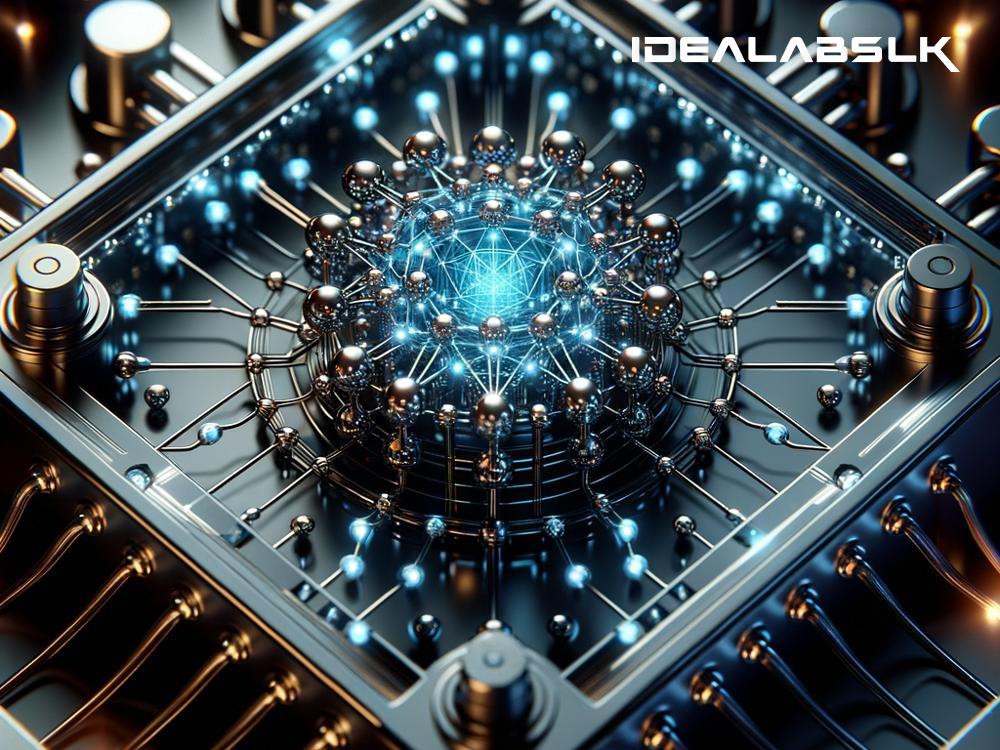Unveiling the Power of Quantum Computing in Pushing AI Forward
Imagine you're trying to solve a massive jigsaw puzzle. The catch? You're not doing it the traditional way—piece by piece. Instead, you've got a superpower: You can work on fitting every single piece at the same time. This is, in essence, the magical might that quantum computing promises to bring into the realm of artificial intelligence (AI).
As we stand at the cusp of a technological renaissance, the fusion of quantum computing and AI is creating a buzz. This isn't just any buzz; it's the thunderous roar of a sea-change that is set to revolutionize how machines learn, think, and solve problems. But before we dive deeper into this convergence, let's demystify some basics.
What is Quantum Computing?
In simple terms, quantum computing is a type of computing that uses the principles of quantum mechanics, a branch of physics that deals with the bizarre, tiny particles that our universe is made of. Unlike traditional computers, which use bits (0s and 1s) to process information, quantum computers use quantum bits or qubits. These qubits can be both 0 and 1 at the same time, thanks to a principle called superposition. Plus, they can be entangled — a kind of quantum connection that helps them to process complex calculations at speeds unimagined by today's standards.
The Quantum Leap into AI
AI, in its essence, is about teaching machines to understand, think, and make decisions like humans. This requires processing a vast amount of information, recognizing patterns, and learning from data. Here's where quantum computing sweeps in like a hero in a cape.
The astronomical processing power of quantum computers can give AI systems the ability to learn and adapt at lightning speeds. This could lead to breakthroughs in understanding natural language, recognizing images and voices with unprecedented accuracy, and even solving some of the most complex problems in science and medicine.
The Hardware Connection
But none of this magic can happen without the right hardware. The role of quantum computing hardware in AI advancements cannot be overstated. Just like an artist needs a canvas, colors, and brushes to create art, AI needs the right kind of quantum computer to achieve its full potential.
Quantum computing hardware refers to the physical components that make a quantum computer. This includes the qubits, the quantum equivalent of classical bits, and the systems that keep them operational (quantum computers need to be kept at temperatures colder than space!). Developing this hardware is no small feat. It requires pushing the boundaries of quantum mechanics, materials science, and engineering.
How Quantum Computing Hardware is Fueling AI Advancements
-
Speed and Efficiency: With the ability to process multiple possibilities simultaneously, quantum hardware can drastically reduce the time needed for AI systems to learn from data and make decisions. This speed can lead to more efficient AI that can tackle complex tasks that were previously impractical due to computational limitations.
-
Complex Problem Solving: Some problems are so complex that even the most powerful classical computers would take years to solve them. Quantum computing hardware, with its ability to handle complex variables and immense datasets, can offer solutions in a fraction of the time. This ability could revolutionize areas such as drug discovery, climate modeling, and financial modeling.
-
Enhanced Machine Learning Models: AI heavily relies on machine learning models that need to be trained on large datasets. The strength of quantum hardware can improve the training process, making these models more accurate and efficient. This could improve everything from personalized recommendations on streaming services to predictive maintenance in manufacturing.
The Road Ahead
We're only at the dawn of the quantum computing era. The journey ahead involves solving numerous challenges, from stabilizing qubits to making quantum computers more accessible. However, the potential impact on AI is too significant to ignore. Tech giants and startups alike are pouring resources into quantum computing research, racing to unlock new capabilities that could redefine what machines can do.
In a future where quantum computing hardware has matured, we could see AI that's capable of groundbreaking innovations at an unprecedented pace — whether it's helping to cure diseases, combat climate change, or simply making our daily lives more efficient and enjoyable.
The convergence of quantum computing and AI is more than just a technological advancement; it's a promise of a future where the limits of what's possible are pushed further than we've ever imagined. And as we stand on the brink of this exciting frontier, one thing is clear: the fusion of these two titanic fields will surely be one of the defining stories of our era.

